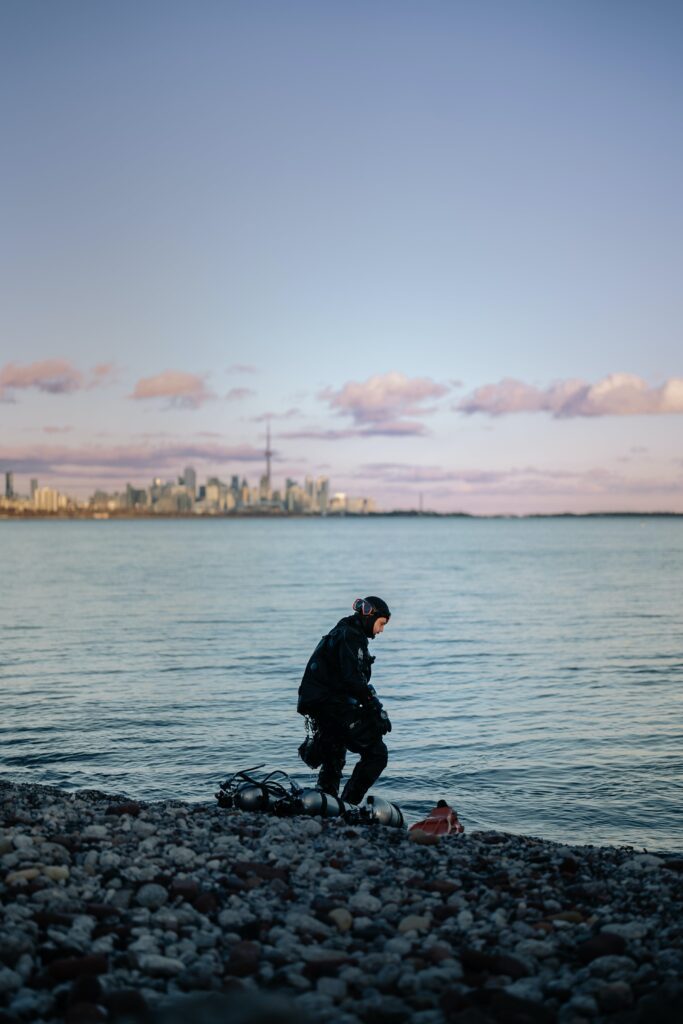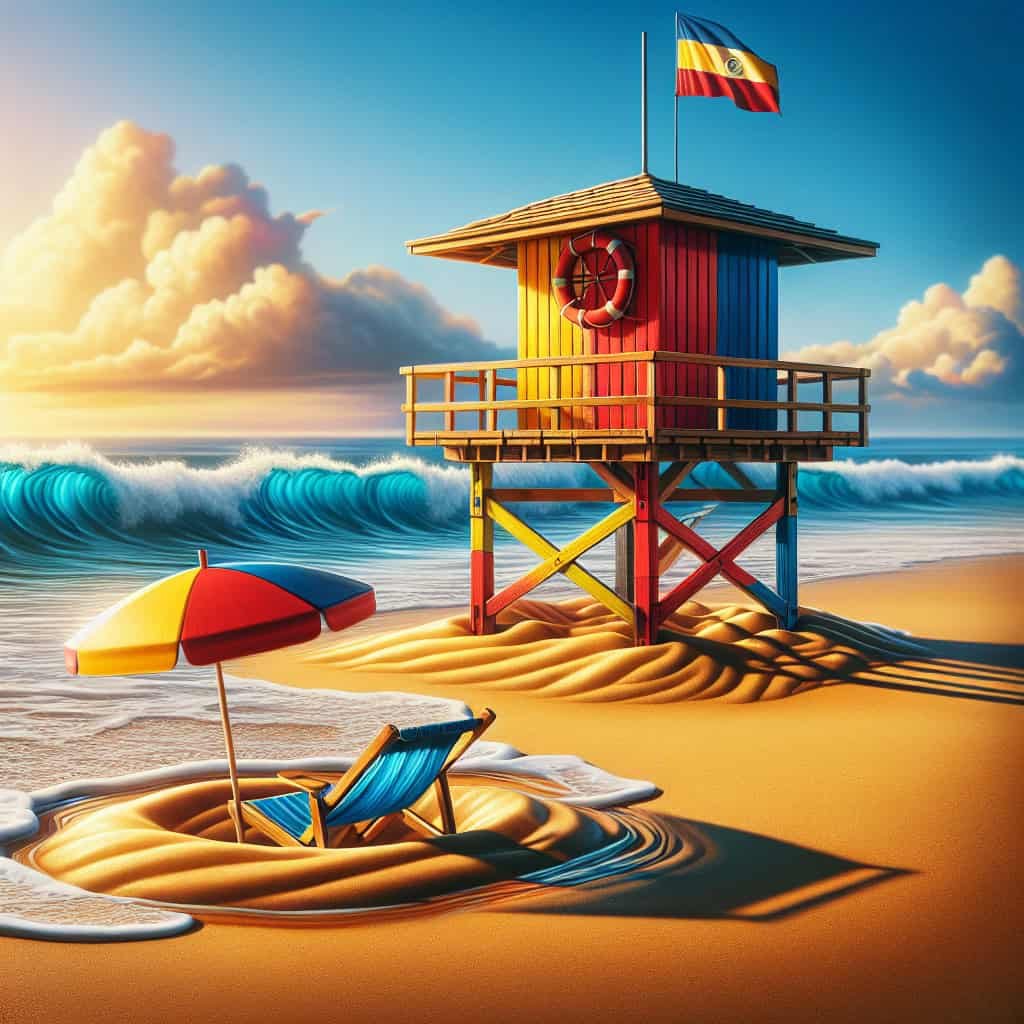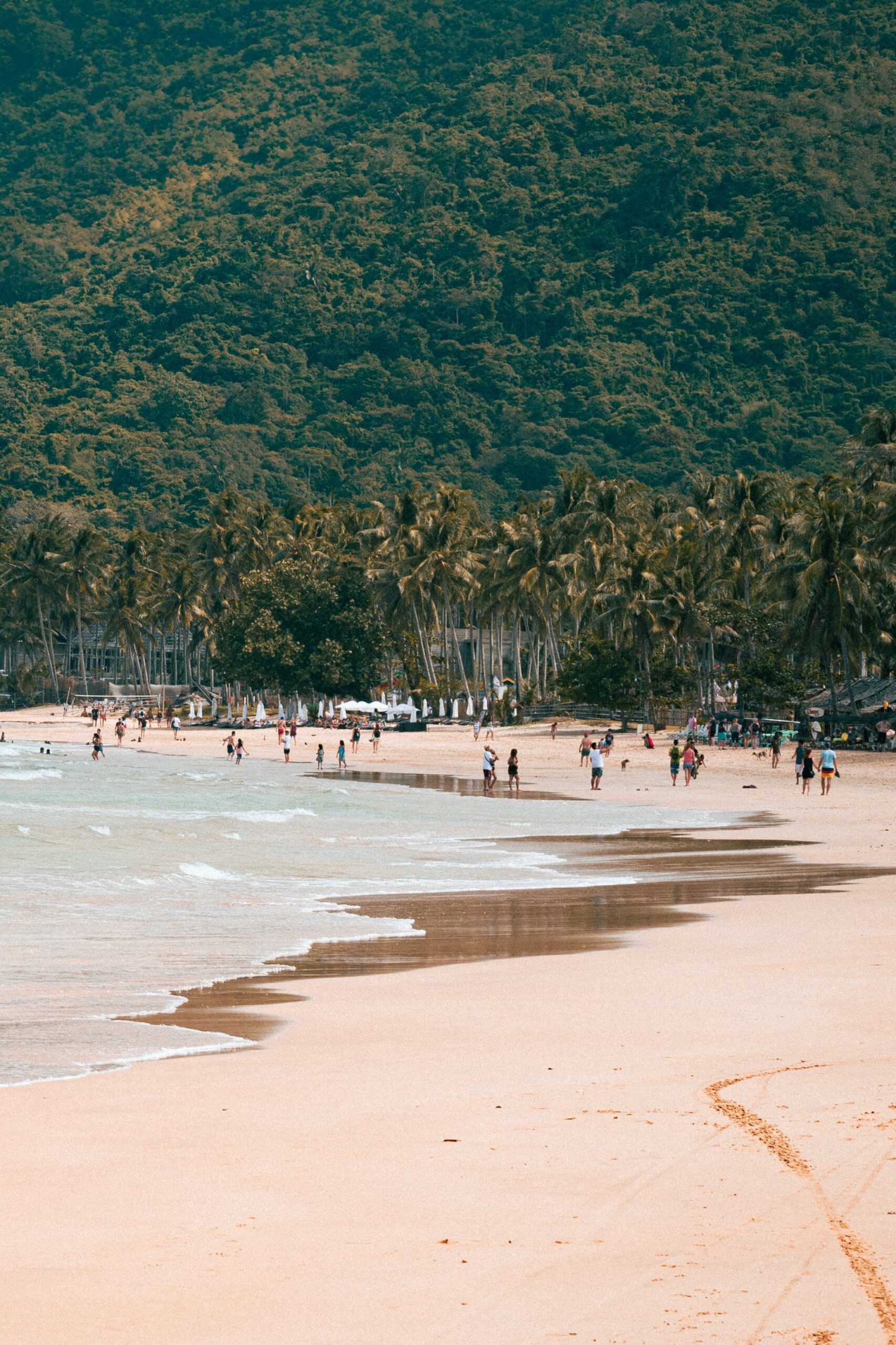When planning your visit to the beautiful beaches of Nicaragua, it is essential to prioritize your safety. This article will provide you with valuable insights and crucial safety precautions to ensure a pleasant and worry-free beach experience. Learn about the potential risks, such as strong currents, extreme sun exposure, and stingrays, and discover practical tips on how to stay safe and make the most of your time in this breathtaking coastal paradise.

Water Safety
Learn to Swim
When visiting beaches in Nicaragua, it is essential to know how to swim. Swimming is a valuable skill that can greatly enhance your beach experience and, more importantly, keep you safe in the water. Take the time to enroll in swimming lessons if you are not a confident swimmer. Learning proper swimming techniques will not only give you the ability to enjoy the ocean but also provide you with the skills to navigate any unexpected situations that may arise.
Be Aware of Rip Currents
Rip currents are powerful currents of water that can pull you away from the shore and into deeper waters. These currents can occur at any beach, including those in Nicaragua. It is crucial to be aware of the signs of rip currents, such as a noticeable difference in water color, a line of debris moving seaward, or a break in the incoming wave pattern. If you find yourself caught in a rip current, remember to stay calm, swim parallel to the shore until you are out of the current, and then swim back to the shore. It is essential to conserve your energy and avoid swimming against the current, as it can quickly exhaust even the strongest swimmers.
Stay Close to Lifeguard Stations
One of the best safety precautions you can take when visiting beaches in Nicaragua is to stay close to lifeguard stations. Lifeguards are trained professionals who constantly monitor the water and can quickly respond to any emergencies. By positioning yourself near a lifeguard station, you not only have an additional layer of protection but also have access to their knowledge and expertise regarding potential hazards in the area. Remember, the lifeguards are there to help keep you safe, so don’t hesitate to ask them for any advice or information you may need.
Sun Safety
Use Sunscreen
Protecting your skin from the sun’s harmful UV rays is crucial when spending time at the beach. Make sure to apply a broad-spectrum sunscreen with an SPF of 30 or higher before heading out. Remember to cover all exposed areas of your body, including your face, arms, legs, and any other body parts that may be exposed to direct sunlight. Reapply sunscreen every two hours or immediately after swimming or excessive sweating. By diligently applying sunscreen, you can significantly reduce the risk of sunburn and long-term damage to your skin.
Seek Shade
While soaking up the sun at the beach can be enjoyable, it is essential to take breaks and seek shade. Prolonged exposure to the sun can lead to heatstroke, dehydration, and other heat-related illnesses. Set up your beach base under a beach umbrella, a palapa, or any other form of shade available. This will provide you with a cool and comfortable area where you can rest, rehydrate, and recharge before venturing back into the sun. Remember, even when in the shade, sunscreen should still be applied to protect your skin from indirect sun exposure.
Wear Protective Clothing
In addition to sunscreen and seeking shade, wearing protective clothing can further safeguard your skin from the sun. Opt for loose-fitting clothing made from lightweight, breathable fabrics that cover as much skin as possible. Consider wearing a wide-brimmed hat to shield your face, neck, and ears from direct sunlight. Don’t forget to wear sunglasses with UV protection to shield your eyes from harmful UV rays. By wearing the right clothing and accessories, you can reduce your risk of sunburn and minimize the adverse effects of prolonged sun exposure.
Beach Conditions
Check Water Quality
Before taking a dip in the beautiful waters of Nicaragua’s beaches, it is important to check the water quality. Polluted or contaminated water can pose significant health risks. Keep an eye out for any signs or warnings indicating poor water quality, such as advisory flags or signs posted by local authorities. If the water quality is questionable, it is best to err on the side of caution and avoid swimming until the conditions improve. You can also consult with locals or hotel staff who have knowledge about the current water conditions and can provide valuable insights.
Watch for Hazards
While the shoreline may seem idyllic, it is important to be vigilant of potential hazards. To ensure your safety, carefully scan the beach for any signs of dangerous objects, such as sharp rocks, broken glass, or debris. Additionally, be cautious of underwater hazards, such as coral reefs or submerged rocks, which can lead to injuries if not navigated carefully. By staying observant and avoiding these hazards, you can minimize the risk of accidents and injuries during your beach visit.
Be Mindful of Tides and Sandbars
Tides and sandbars are natural features of any beach and can impact your safety. Familiarize yourself with the tide times and patterns to avoid being caught off guard by a high tide or strong currents. It is also advisable to stay away from sandbars, as they can be treacherous due to sudden drop-offs or powerful waves that may occur around them. Always be mindful of the changing tides and be cautious when swimming or participating in water activities near sandbars. Being aware of these factors will help ensure a safe beach experience.
Wildlife Safety
Beware of Jellyfish and Stingrays
While enjoying the pristine waters of Nicaragua, it is essential to be aware of potential encounters with jellyfish and stingrays. These marine creatures can pose a threat if not approached with caution. Keep an eye out for warning signs indicating the presence of jellyfish, and if you spot any, it is best to stay out of the water until the threat subsides. Stingrays are often found resting on the seafloor, so be careful when wading or shuffling your feet in the water to avoid stepping on them. If stung by a jellyfish or stingray, seek medical attention immediately.
Avoid Touching or Feeding Marine Life
While exploring the underwater world, it can be tempting to touch or feed the fascinating marine life you encounter. However, it is essential to resist this urge. Touching marine life can be harmful to both you and the animal, as it may disrupt their natural habitats or provoke defensive behaviors. Feeding marine life can also create an unnatural dependency on human interaction, which can negatively impact their survival instincts. Appreciate the beauty of the marine life from a respectable distance and leave them undisturbed in their natural environment.

Personal Belongings
Keep Valuables Secure
When visiting beaches in Nicaragua, it is important to keep your valuables secure. While beach destinations often provide a relaxing environment, petty theft can occur, and opportunistic thieves may target unattended belongings. Invest in a portable safe or waterproof bag to store your valuable items, such as passports, wallets, and electronics, when you are in or near the water. This will ensure that your valuables remain safe and give you peace of mind while you enjoy the beach.
Don’t Leave Valuables Unattended
Leaving your belongings unattended, even for a short period, increases the risk of theft. When visiting the beach, be sure to assign a trusted individual from your group to watch over your belongings when you are in the water or away from your spot. Alternatively, consider renting a locker at beach facilities or hotels that offer secure storage options for your valuables. By taking these precautions, you can reduce the chances of falling victim to theft and enjoy your beach experience worry-free.
Health Precautions
Stay Hydrated
Spending time under the sun can lead to dehydration, especially in tropical climates. When visiting Nicaraguan beaches, make sure to stay properly hydrated by drinking plenty of water. Aim to drink water regularly throughout the day, even if you do not feel thirsty. Remember to pack an adequate supply of water or purchase bottled water from trusted sources near the beach. By staying hydrated, you can prevent heat-related illnesses and enjoy your time at the beach to the fullest.
Watch Out for Mosquitoes
Nicaragua, like many tropical destinations, is home to mosquitoes that may carry diseases such as dengue fever, Zika virus, or chikungunya. Protect yourself from mosquito bites by using insect repellent containing DEET or other recommended ingredients. Apply the repellent to exposed skin and clothing, following the product’s instructions carefully. If possible, wear long-sleeved shirts, long pants, and socks to further minimize your exposure to mosquitoes. It is also advisable to avoid outdoor activities during peak mosquito activity times, particularly dawn and dusk.
Be Prepared for First Aid
Accidents can happen anywhere, including at the beach. It is essential to be prepared for minor injuries and have a basic first aid kit on hand. Your first aid kit should include essentials such as adhesive bandages, antiseptic wipes, gauze pads, tweezers, and any necessary medications or personal medical supplies. Additionally, familiarize yourself with basic first aid procedures, such as treating minor cuts, burns, or insect bites. By being prepared and having the necessary supplies, you can provide immediate care in case of any mishaps during your beach visit.

Communication
Share Itinerary with Others
When visiting beaches in Nicaragua or any unfamiliar location, it is wise to share your itinerary with a trusted person. Provide details such as the name of the beach, the dates and times of your visit, and any other pertinent information. This ensures that someone knows where you are and can raise an alarm or reach out for help if necessary. Sharing your itinerary provides an extra layer of security and peace of mind, knowing that someone is aware of your whereabouts.
Keep Emergency Contacts Handy
In case of an emergency, it is essential to have emergency contacts easily accessible. Save the contact information for local emergency services, such as ambulance services and the nearest medical facility, in your phone or write them down on a waterproof card in your wallet. Additionally, ensure that you have the contact information for your travel insurance provider readily available. By having these emergency contacts easily accessible, you can quickly seek help if the need arises.
Local Guidelines
Respect Local Customs and Laws
When visiting any destination, it is essential to respect the local customs and laws. Research and familiarize yourself with Nicaragua’s customs, traditions, and cultural practices before visiting the beaches. Understand and follow any local regulations or guidelines related to beach activities, such as restrictions on bonfires, alcohol consumption, or the use of drones. By respecting local customs and laws, you contribute to a harmonious and enjoyable experience for both yourself and the local community.
Follow Beach Rules and Regulations
Beaches often have specific rules and regulations in place to ensure the safety and well-being of visitors. Pay attention to any signs or guidelines posted at the beach, such as swimming boundaries, speed limits for watercraft, or restrictions on pets. Familiarize yourself with these rules and ensure that you adhere to them during your beach visit. By following the beach rules and regulations, you help maintain a safe and enjoyable environment for everyone.

Travel Insurance
Ensure Adequate Travel Insurance Coverage
Before embarking on your beach adventure in Nicaragua, it is crucial to have adequate travel insurance coverage. Travel insurance can provide financial protection and assistance in case of medical emergencies, trip cancellations, or lost belongings. Ensure that your travel insurance policy covers any activities you plan to engage in during your beach visit, such as water sports or beach excursions. Take the time to review and understand the terms and conditions of your policy, and carry a copy of your insurance documents with you during your trip.
Emergency Preparedness
Know the Location of the Nearest Medical Facility
It is essential to know the location of the nearest medical facility when visiting beaches in Nicaragua. Research and identify the nearest hospital, clinic, or medical facility in the area before your beach visit. Save their contact information and address in your phone or write it down in a easily accessible location. Familiarize yourself with the best route or means of transportation to reach the medical facility quickly in case of an emergency. By being prepared and knowing the nearest medical facility, you can minimize the response time during an unforeseen medical situation.
Emergency Evacuation Plan
In the event of a natural disaster or any other emergency situation, it is crucial to have an emergency evacuation plan in place. Familiarize yourself with the local evacuation procedures and routes, and know the designated assembly points or safe areas. Understand the warning signs or signals used to communicate emergency situations, such as sirens or public announcements. Stay informed about any existing emergency plans or protocols implemented by local authorities for beachgoers. By having an emergency evacuation plan, you can ensure the safety and well-being of yourself and others in case of an emergency.
In conclusion, when visiting beaches in Nicaragua, it is important to prioritize safety. By following these safety precautions, from water safety to wildlife encounters, you can have an enjoyable and worry-free beach experience. Take the necessary steps to protect yourself from the sun, be mindful of potential hazards, and respect the local customs and guidelines. Remember to stay hydrated, carry essential items such as sunscreen and a first aid kit, and be prepared for emergencies. By being proactive and informed, you can make the most of your time at Nicaragua’s stunning beaches while staying safe.

